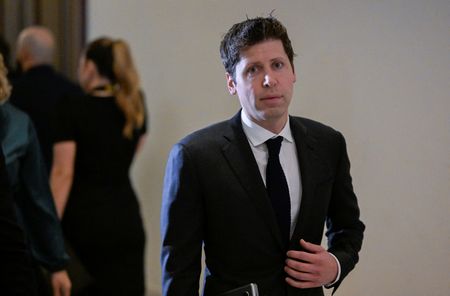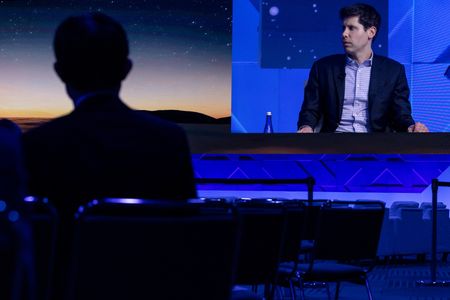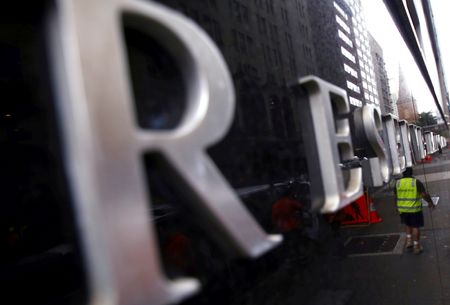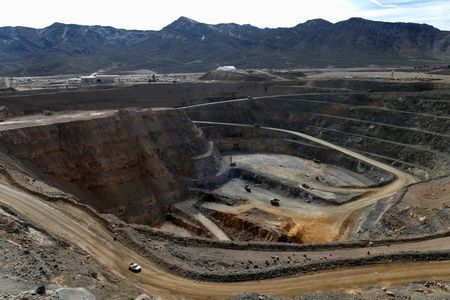By Aditya Soni
(Reuters) – Sam Altman’s return as OpenAI’s chief executive will strengthen his grip on the startup and may leave the ChatGPT creator with fewer checks on his power as the company introduces technology that could upend industries, corporate governance experts and analysts said.
OpenAI is bringing Altman back just days after his ouster as well as installing a revamped board that could bring sharper scrutiny to the startup at the heart of the AI boom, but strong support from investors including Microsoft may give Altman more leeway to commercialize the technology.
“Sam’s return may put an end to the turmoil on the surface, but there may continue to be deep governance issues,” said Mak Yuen Teen, director of the centre for investor protection at the National University of Singapore Business School.
“Altman seems awfully powerful and it is unclear that any board would be able to oversee him. The danger is the board becomes a rubber stamp,” he said.
OpenAI’s new board will boast more experience at the top level and strong ties to both the U.S. government and Wall Street.
The board fired Altman last week with little explanation and attempted to move on by naming an interim CEO twice. However, pressure from Microsoft – and the 38-year-old’s strong loyalty among the 700-plus OpenAI employees that caused nearly all of them to threaten to leave the company – led to Altman’s reinstatement as of Wednesday.
“Altman has been invigorated by the last few days,” GlobalData analyst Beatriz Valle said. But that could come at a cost, she said, adding that he has “too much power now.”
Bret Taylor, former co-CEO of Salesforce who also played a key role in forcing through Elon Musk’s $44 billion purchase of Twitter as a director, will be chairing the board.
Other members include former U.S. Treasury Secretary Larry Summers, a Harvard academic and longtime economic aide to Democratic presidents.
“The fact that Summers and Taylor will join OpenAI is quite extraordinary and marks a dramatic reversal of fortunes in the company,” Valle said.
Summers, who also sits on the board of Jack Dorsey’s fintech firm Block, has in recent months been vocal about the potential job losses and disruption that could be caused by AI.
“ChatGPT is coming for the cognitive class. It’s going to replace what doctors do,” he said in a post on X in April.
OpenAI’s previous board consisted of entrepreneur Tasha McCauley, Helen Toner, director of strategy at Georgetown’s Center for Security and Emerging Technology, OpenAI chief scientist Ilya Sutskever, as well as Quora CEO Adam D’Angelo, who also sits on the new board.
It was not immediately clear if any of the other directors would remain, including Sutskever, who joined in the effort to fire Altman then signed onto an employee letter demanding his return, expressing regret for her “participation in the board’s actions.”
OpenAI on X said it was “collaborating to figure out the details” of the new board.
Microsoft declined to comment. Summers and OpenAI did not immediately respond to requests for comment. Sutskever, Altman and Taylor could not be immediately reached for comment.
Some analysts say the management fiasco will ensure that OpenAI executives proceed cautiously, as the high-flying startup will now be subject to more scrutiny. Several noted that companies such as Facebook parent Meta have flourished with a powerful CEO despite concerns about corporate governance.
“Sam definitely comes out stronger but also dirtied and will have more of a microscope from the AI and broader tech and business community,” Gartner analyst Jason Wong said. “He can no longer do no wrong.”
(This story has been refiled to capitalize a letter in GlobalData in paragraph 7)
(Reporting by Aditya Soni in Bengaluru; Editing by Mark Porter)






